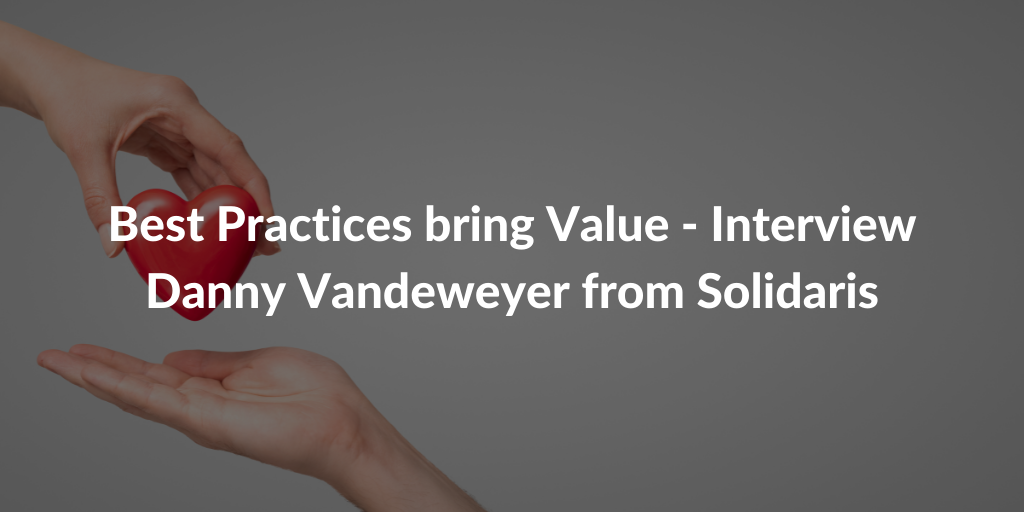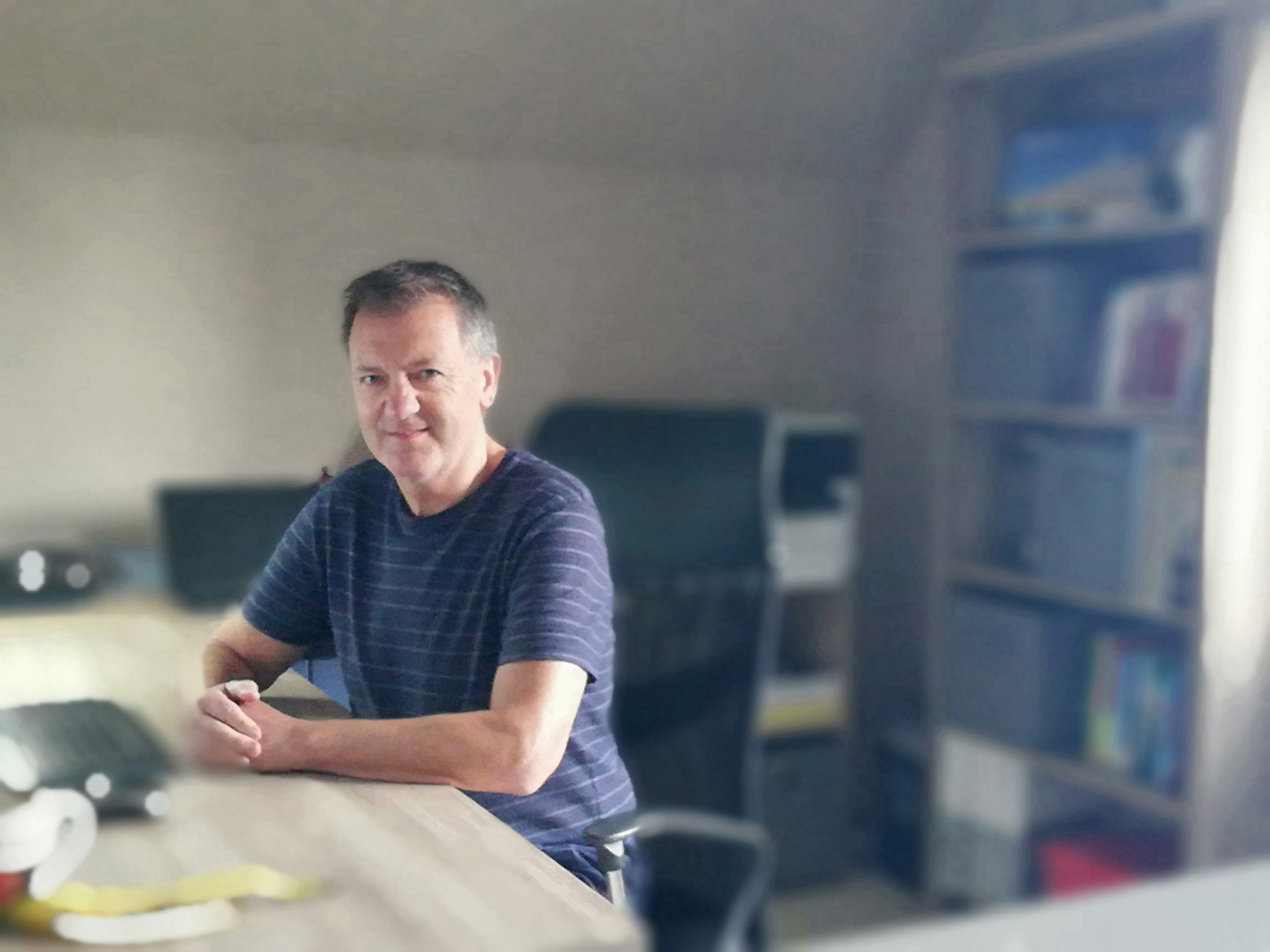Programme, Project Portfolio or PMO, what’s in a name? When using proper methodologies to manage projects, this can create value for your organisation. In this interview we asked Danny Vandeweyer from Solidaris how he tackles project challenges with Best Practices.
What is your role and what is it that you actually do?
My function title is Programme Manager, but in reality being a Programme Manager is just a very small part of my work. The bigger part of my work is related to managing the Project Portfolio and the PMO (Project Management Office). I also act as an escalation point between IT, our services and external parties.
For the portfolio part, I have regular meetings with the different departments to discuss the priorities, planning & progress of the projects. And ofcourse make sure that there is alignment with the capacity planning of the IT-resources.
As PMO Manager, I have to ensure that the methodology we use to manage our projects is correctly applied. This means monitoring the projects and making adjustments when necessary, but it also means providing training and coaching for the Project Managers, the Business Analysts and the Department Managers. The Department Managers also play an important role here, because they need to understand how we manage the projects. I also have to make sure that the necessary templates and tools are available and correctly used. And because we value Continual Improvement, I regularly discuss the methodology, templates and tools with the PMs and BAs to see if any improvements are needed.
How did you arrive at your current position?
I started my career as an Analyst/Programmer for a consulting firm that assigned me to a logistics company. Here I quickly gained knowledge of the logistics world, and the company asked me if I would be interested in managing a project for them. It was a small-scale project at first, but it introduced me to the world of Project Management.
Larger projects followed soon, as the Project Management world was very fascinating to me. Therefore, I started taking courses to learn more and read many books about the different methodologies and bodies of knowledge like PRINCE2 and the PMBoK. I also broadened my knowledge by managing projects for the banking industry and several payment service providers.
The next logical step for me was to enter the world of Programme-, Portfolio- and PMO Management. After working in these functions at various companies, my current company found me through a headhunter as they were looking for someone with my skills. This is how I arrived at Solidaris, which is a mutuality that provides social health insurance in Belgium.
What Best Practices do you use within your organisation? Why is this important?
When I started in this organisation in 2018, I was asked to improve the way the organisation worked with projects. At that time, the waterfall method was still in use, but as you know, nowadays and certainly within IT, that method lacks agility. So I first introduced a basic methodology based on PRINCE2 Agile. It gave the people a structure to follow and to be agile as needed.
Some of the important Best Practices that we currently promote internally are:
- Determine the requirements and scope, and manage them appropriately
- Plan and schedule the project. Allocate the proper resources
- Monitor the project and take corrective actions if/when needed
- Handle risks and issues
- Create a proper communication plan and stick to it
- Conclude the project properly
The use of Best Practices provides a structured and thorough basis for the management of projects. It provides a way of doing the job more efficiently and, if applied properly, can get the job done better and faster. Since all projects are structured basically almost the same way, it also makes the stakeholders better understand how Project Management works in the organisation.
How can you create value through Project and/or Programme Management in your industry? Is there a special use case that you would like to tell us about?
As a matter of fact, Covid has made working in the health sector very challenging in the past few years. New regulations were constantly imposed and we had to react in a very quick way to make the necessary adjustments to our software. And ofcourse the first reaction of people was to bypass some Best Practices. However, we encouraged them to stick to the plan and were able to show how working with methods in a pragmatic and agile way brought value to them.
The remark we often got from our Management Team, was that too much time was spent on initiating the project to get the requirements and scope clear. And that while we could have already started the work. That’s why we also introduced the importance of MVP (Minimum Viable Product) in Project Management. Once this MVP was determined, work could already get started to deliver what was needed for this.
What are the biggest challenges for a PMO working in your industry? Are there any fundamental skills or personal traits that a successful PMO should be aware of?
As a mutuality we must work together with the National Intermutualist College (NIC – CIN) which is a mutualist association composed of representatives of the different federations of health insurance funds and other social insurance organisations. This organisation initiates common projects which are discussed among all different PMO Representatives of all federations. Next to this, regulations in the Belgian law change regularly. And mostly these come with strict deadlines. Add this to the workload of projects within your own organisation, and you can imagine that maintaining a timely project planning is very challenging.
This means that fundamental skills within our PMO are certainly related to communication, and more specifically related to the ability to negotiate. Having good planning skills is also important, as you have to make sure that deadlines, desired delivery dates and capacity planning of resources needed for the project all fit together.
As a PMO we are also, in first instance, responsible for the training and coaching of the PMs, but also for promoting the knowledge and use of the methodology and Best Practices to all stakeholders. So being able to provide training and coaching is also an important skill for us.
On a more personal note, how do you see your professional and/or personal growth in the coming years? What can we expect from you?
On a professional level, there’s still work to help my organsisation grow in maturity. That’s why I like the concept of ‘Continual Improvement’. You can start on a basic level and when the time is right (read: when almost everybody is on the same level), you can progress to the next level. Helping an organisation grow, is what gives me energy.
On a personal level, I get a lot of energy from the fact that I can use all my knowledge and skills to organise events. Meaning that, in my spare time I yearly voluntarily organise an event. For this occasion we collect funds for charities linked to cancer research and support for cancer patients and their families. With a group of friends, we started in 2010 with the organisation of the event ‘Ven2-4Cancer’ (read: Ventoux for Cancer). Cycling, walking and running to the top of Mont Ventoux in France. In 2014 we started to organise the event ‘Relay for Life’ (Levensloop / Relais pour la Vie) in my hometown.
From 2010 till 2019 our total donations reached an amount of almost 3,5 million euros for organisations like ‘Kom op tegen kanker’ en ‘Stichting tegen kanker’. Unfortunately, due to Covid, we weren’t able to organise an event during the last two years. But on 24 and 25 september of this year (2022) the event will take place again. Now under the name ‘Samen voor Hoop’ (United for Hope).
And as said, a lot of the skills that I have like communication, negotiation, planning and so on, are also very useful in the organisation of this event.









